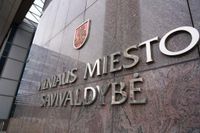In a significant move, Russia has announced a new law prohibiting individuals designated as foreign agents from engaging in educational activities using the Russian language. This law, which is set to come into effect this week, effectively declares the Russian language the property of the Russian state, according to Ajmar Ventsel, who discussed the implications of this legislation on Vikerraadio.
The law is part of a broader crackdown initiated over a decade ago, targeting organizations that receive 20 percent or more of their funding from abroad and engage in political activities. Initially, this law seemed vague and its enforcement unclear, but it has since evolved into a stringent regulatory framework. The first entity to be labeled as a foreign agent was a nature reserve for gray cranes, a move that many viewed as absurd and unnecessary.
Over the years, the law has tightened its grip, first barring foreign agents from applying for government grants and scholarships, which are crucial funding sources for many non-governmental organizations in Russia. The designation of foreign agent has shifted from organizations to individuals, granting the state greater authority to regulate and monitor these individuals.
Under the new law, foreign agents must publicly disclose their status in all communications, including social media posts. For example, a foreign agent must include a disclaimer stating, "This material was produced, disseminated, or transmitted by a foreign agent who is also on the foreign agents list." This requirement has made it increasingly difficult for individuals to navigate their professional lives without facing repercussions.
As tensions escalated with the onset of the full-scale war between Ukraine and Russia, the restrictions on foreign agents intensified. They were barred from participating in educational activities within state institutions, meaning that those with foreign agent status could no longer engage in teaching or public speaking. For instance, if a local cultural center wished to host an event on the life of ants, they could not invite a foreign agent to speak.
This crackdown is seen as a direct retaliation against intellectuals and critics of the government, many of whom have fled Russia since the war began. The exact number of cultural and scientific figures who have left is unknown, but many are now residing in North America, Europe, Georgia, and Armenia. Those who dared to voice any criticism of the Russian government found themselves quickly labeled as foreign agents.
In early March, Russian authorities implemented another controversial measure that further stripped foreign agents of their rights. A law that took effect on March 1 prohibited these individuals from receiving royalties or payments for their work, such as book sales, and made it nearly impossible for them to sell property in Russia. While theoretically possible, the practicalities of selling real estate for foreign agents are daunting. They must open a special account and can only use the funds in very limited ways.
This law has dealt a severe blow to many Russian scholars and cultural figures who have relocated abroad and are now unable to liquidate their assets in Russia to support their new lives. The impending law introduces criminal liability for engaging in educational activities, with penalties including fines and potential imprisonment.
Moreover, legal entities registered in Russia are barred from permitting foreign agents to conduct activities in Russian, further tightening the noose around these individuals. This means that foreign agents are prohibited from making publications on popular platforms like Facebook and Telegram, as well as maintaining their own YouTube channels.
For instance, a colleague of mine, an anthropologist who left Russia in 2022, has been conducting online lectures on anthropology. However, under the new law, recording these lectures and receiving payment for them constitutes a criminal offense for all involved parties.
The implications of these regulations extend beyond mere educational activities. For Russians living abroad, the potential for criminal prosecution could complicate visa renewals, residency permits, and travel plans. While some individuals have expressed their intention to defy the new law, it seems that many in exile may choose to comply out of fear or necessity.
On a philosophical note, this legislation raises questions about the nature of language and ownership. By declaring the Russian language a state property, President Vladimir Putin has effectively positioned the government as the gatekeeper of its use and expression.
In another part of the region, a resident of Vilnius has voiced outrage over the local municipality's decision to provide consultation services in Russian, alongside Lithuanian. Mindaugas, who contacted the portal tv3.lt, questioned why he should hear Russian when calling the Vilnius municipality. He argued that this practice violates the Constitution and the Law on the State Language, suggesting that the municipality's rationale for accommodating Ukrainians was insufficient.
Press Secretary Gabrielus Grubinskas defended the municipality's actions, stating that they do not violate any laws, as Lithuanian remains the primary service language. Experts have noted that providing services in multiple languages can facilitate communication with tourists and foreigners.
This situation highlights the delicate balance between language rights and national identity in a region marked by historical tensions. As the Russian language continues to be a point of contention, the actions of both the Russian government and local municipalities in Lithuania reflect broader societal debates about cultural preservation and the complexities of multilingualism.
In conclusion, the new Russian law restricting educational activities by foreign agents marks a significant escalation in the government's efforts to control discourse and limit dissent. Coupled with the ongoing situation in Lithuania, where the use of the Russian language remains a contentious issue, these developments underscore the intricate interplay of language, power, and identity in Eastern Europe today.






